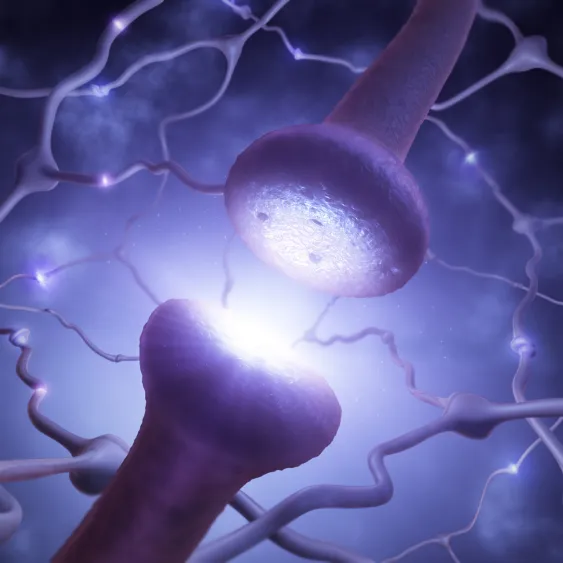End the Restless Nights, Rediscover Deep Sleep
Uncover the biological roots of your insomnia and learn our proven, science-based method to restore your body's natural ability to sleep soundly.
Common Insomnia Symptoms:
Difficulty falling asleep at night
Waking up frequently during the night
Waking up too early and can't go back to sleep
Feeling tired and unrefreshed upon waking
The Biological Driver of Your Sleepless Nights
Insomnia is not just a "busy mind." It is a symptom of deeper physiological imbalances in your hormones, neurotransmitters, and stress-response system.
80%
Hormone-Driven
of chronic insomnia cases are linked to high nighttime cortisol (stress hormone) levels.
5x
Higher Anxiety Risk
Poor sleep increases the risk of developing anxiety and depression by up to 5 times.
75%
Sleep Improvement
Addressing root causes can improve sleep quality by over 75% without medication.
How Imbalances Fuel Insomnia:

Cortisol Dysregulation
High nighttime cortisol from chronic stress keeps your brain in an alert, "wired" state, preventing sleep.

Neurotransmitter Imbalance
Low levels of calming neurotransmitters like GABA and serotonin make it difficult to quiet the mind.

Blood Sugar Swings
Unstable blood sugar can cause adrenaline spikes during the night, waking you up suddenly.

Nutrient Deficiencies
Lack of key minerals like magnesium impairs the body's ability to relax and enter deep sleep.
Dr. Calm's Sleep Restoration Program
Our proven 3-step method goes beyond sleeping pills to address the root causes of insomnia and retrain your body to sleep naturally.

1. Comprehensive Sleep Assessment
Advanced testing to identify the precise hormonal and neurological imbalances that are disrupting your sleep.
Hormone & Cortisol Rhythm Testing
Neurotransmitter Analysis
Advanced Sleep Quality Tracking

2. Personalized Sleep Protocol
A custom-built plan to calm your nervous system, balance your hormones, and support deep, restorative sleep.
Nervous System Regulation
Targeted Nutrient Therapy
Behavioral Sleep Coaching

3. Long-Term Restorative Sleep
Ongoing guidance to help you build sustainable habits that protect your sleep and optimize your circadian rhythm for life.
Sustainable Sleep Habits
Circadian Rhythm Optimization
Collaborative Medication Plan
Success Rate: 88% of Patients Achieve Consistent, Restful Sleep
Within 90 days of starting our Sleep Restoration program.
Featured In Leading Sleep Science Publications

Journal of Sleep Research
December 2024
"Dr. Calm's functional approach to insomnia, which targets the HPA axis and neuro-hormonal balance, offers a promising alternative to sedative medications."

Sleep Science Today
November 2024
"This program treats insomnia as a symptom of a dysregulated system. By fixing the system, they fix the sleep, leading to more sustainable results."
Dr. Calm's Circadian Rhythm Study
Our latest research demonstrates how targeted interventions for cortisol rhythm can dramatically improve sleep onset and duration in chronic insomniacs.
Frequently Asked Questions
Can I learn to sleep well without sleeping pills?
Absolutely. Sleeping pills are a temporary band-aid that don't fix the underlying problem. Our approach is designed to identify and heal the root causes of your insomnia, restoring your body's innate ability to sleep soundly on its own.
How long will it take to start sleeping better?
While everyone is unique, most of our patients begin to experience calmer nights and improved sleep quality within the first 2-4 weeks. Significant, lasting improvements in sleep duration and consistency typically occur within 90 days.
Is it safe to reduce or stop my sleep medication?
Yes, when done correctly and under professional supervision. We work collaboratively with your prescribing doctor to create a safe and gradual tapering plan as your natural sleep architecture improves.
I've already tried sleep hygiene. How is this different?
Sleep hygiene is important, but for chronic insomnia, it's often not enough because it doesn't address the deep physiological imbalances. We use lab testing to fix what's happening inside your body—like high cortisol or low GABA—that prevents sleep hygiene from working.
Ready to Restore Your Sleep?
Book a free discovery call to learn how our Sleep Restoration Program can help you end the restless nights and wake up feeling refreshed and energized.

Free Consultation
30-minute discovery call

Sleep Assessment
Comprehensive evaluation

Custom Protocol
Personalized treatment plan
Disclaimer: "This program is not intended to replace medical treatment. Always consult your healthcare provider before making changes to Insomnia Management."

Quick Links
Resources
Social
| Privacy Policy | Terms of Service | Disclaimer |
© Dr Calm 2025 All Rights Reserved.